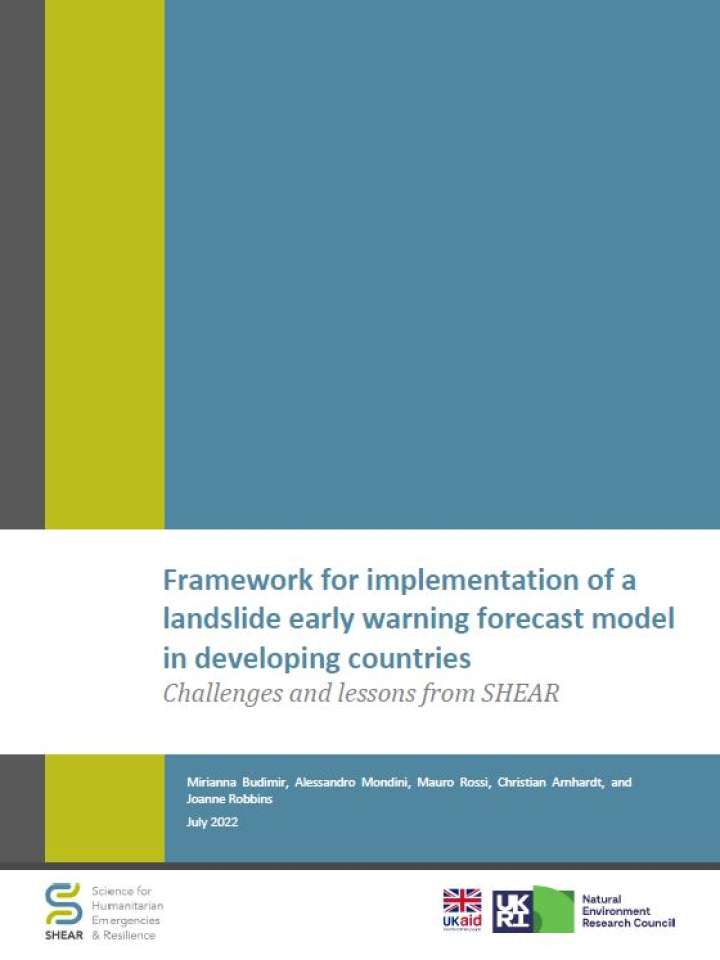Framework for implementation of a landslide early warning forecast model in developing countries: Challenges and lessons from SHEAR
The Science for Humanitarian Emergencies and Resilience (SHEAR) programme supports world-leading research to enhance the quality, availability and use of risk and forecast information. Forecasting rainfall-induced landslides is a difficult yet important task that can provide time to take action to save lives, reduce economic losses and help to mitigate the impacts of landslides.
The type, quality and accessibility of data directly constrain the choice of approach used for the landslide forecasting and its skill. However, in many landslide-prone countries, limited resources, and lack of investment lead to limited data availability and/or insufficient quality data for informed forecasts. This paper collates understanding from SHEAR consortium members on key considerations for developing territorial (‘regional-scale’) landslide forecasts, particularly in developing country contexts.
Explore further

